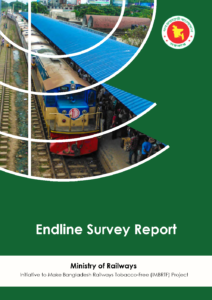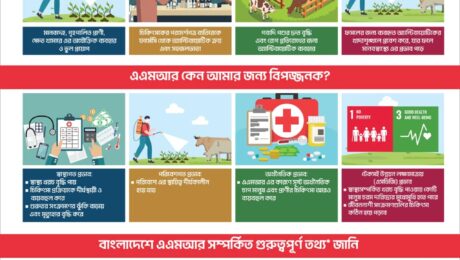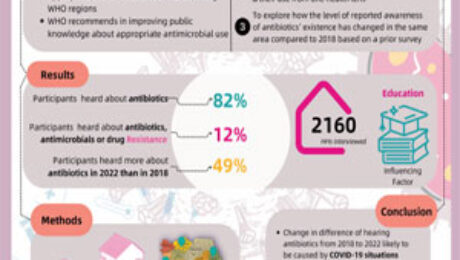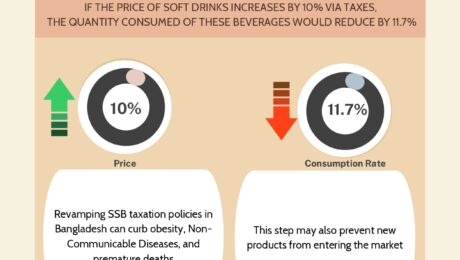Initiative to Make Bangladesh Railways Tobacco Free (IMBRTF) is an endeavor by the MoR to make railway stations and trains tobacco and smoking free. Under this project, ARK Foundation, has conducted this Endline study in 10 model stations which attempts to understand the overall scenario of the implementation of tobacco laws in the railway stations
- Published in Report
No Comments
World Antimicrobial Awareness Week (WAAW) 2024 (Nov 18-24) begins today, reinforcing the message to “Educate. Advocate. Act now.” in tackling the AMR crisis.This year’s theme calls on everyone- from policymakers to the general public- to learn about the growing threat of antimicrobial resistance (AMR) and take urgent steps to combat it. ARK, has been actively
- Published in Infographics, Resources
Exploring The Level of Awareness and Understanding About AMR From a One Health Perspective Among Different Socio- Demographic Subgroups: Findings From The Baseline Study of a Cluster Randomised Control Trial In Bangladesh CLICK HERE TO DOWNLOAD THE REPORT
- Published in Conference Proceedings, Resources
- Published in Project Brief, Resources
Potential determinants in health sector influencing health care expenditure of the households: A mixed-methods study in Bangladesh. Submitted to – Non-Communicable Disease Control Programme Health Services Division Ministry of Health and Family Welfare Submitted by – ARK Foundation Suite C-3 & C-4, House # 06, Road # 109 Gulshan-2, Dhaka 1212 June 2023 CLICK HERE
- Published in Resources, Working Paper
Co-designing community-based interventions to tackle antimicrobial resistance (AMR): what to include and why CLICK HERE TO DOWNLOAD THE REPORT
- Published in Project Brief, Resources
Abstract Introduction The burden of multimorbidity is recognised increasingly in low- and middle-income countries (LMICs), creating a strong emphasis on the need for effective evidence-based interventions. Core outcome sets (COS) appropriate for the study of multimorbidity in LMICs do not presently exist. These are required to standardise reporting and contribute to a consistent and cohesive
- Published in Journal Article, Resources
Exposure to secondhand smoke (SHS) risks children’s health. However, biomarkers are rarely used to study SHS exposure among children in low- and middle-income countries. We analyzed cross-sectional data collected between March and November 2022 for a cluster-randomized controlled trial investigating a Smoke-Free Intervention in 2769 children aged 9–15 in 74 schools (34 in Dhaka, Bangladesh,
- Published in Featured, Journal Article, Resources
The burden of multimorbidity is recognised increasingly in low- and middle-income countries (LMICs), creating a strong emphasis on the need for effective evidence-based interventions. Core outcome sets (COS) appropriate for the study of multimorbidity in LMICs do not presently exist. These are required to standardise reporting and contribute to a consistent and cohesive evidence-base to
- Published in Journal Article, Resources
Did you know that in Bangladesh, the number of adults living with diabetes was 8.4 million in 2019, a figure projected to nearly double to 15 million by 2045? One of the significant contributors to this health issue is the consumption of Sugar-Sweetened Beverages (SSBs). The ARK Foundation recently published a pioneering study addressing the
- Published in Infographics, Resources









